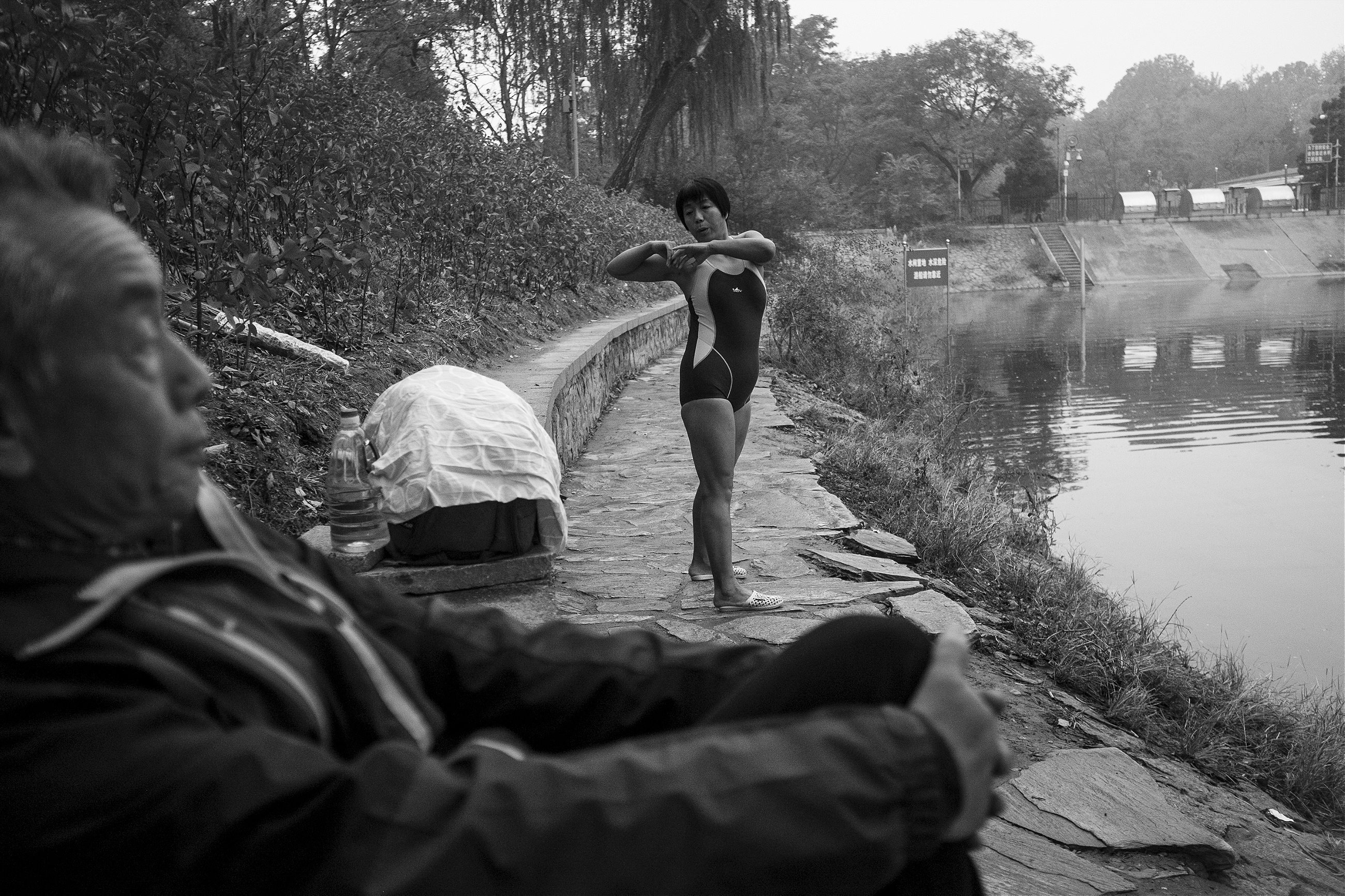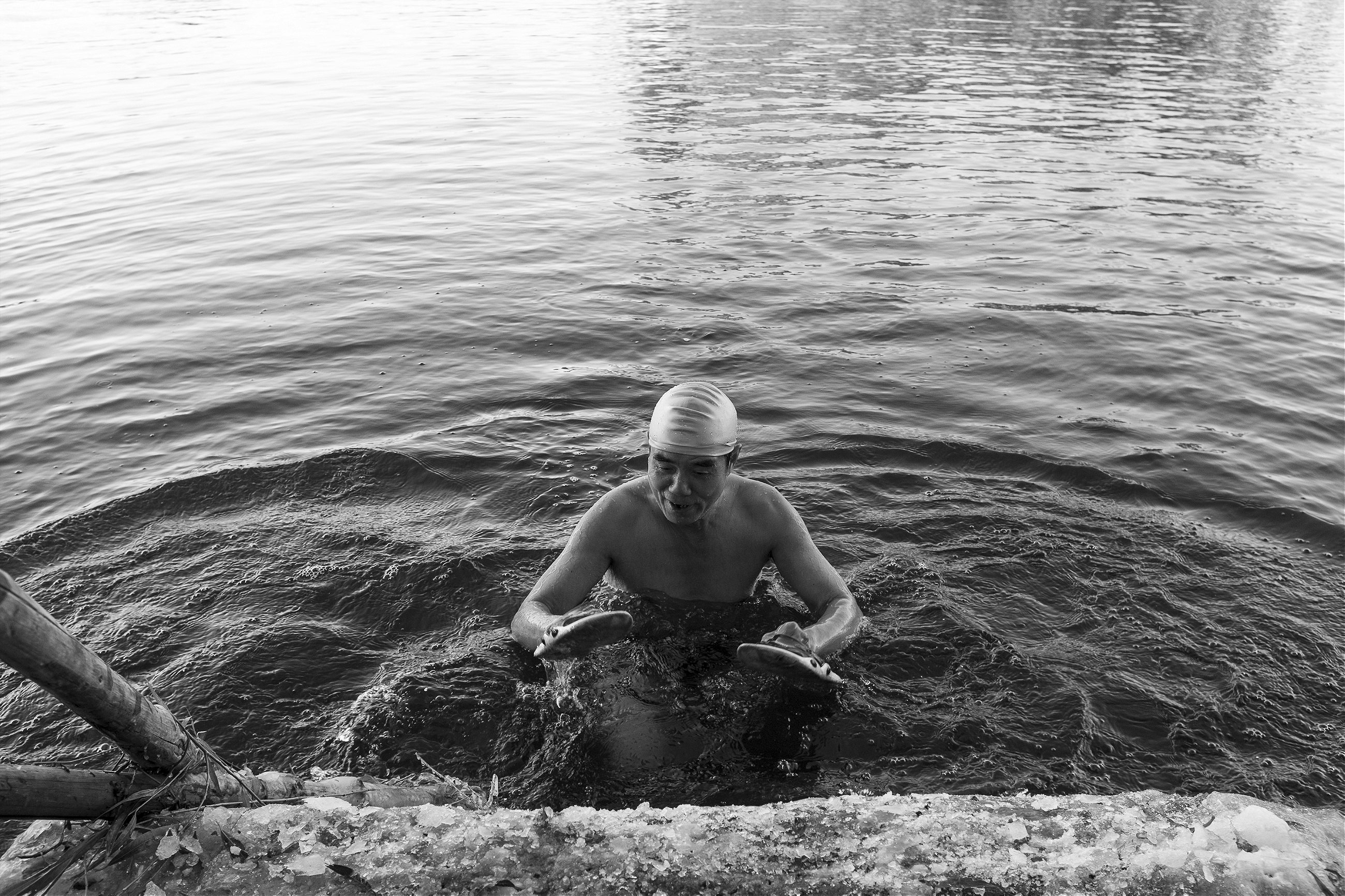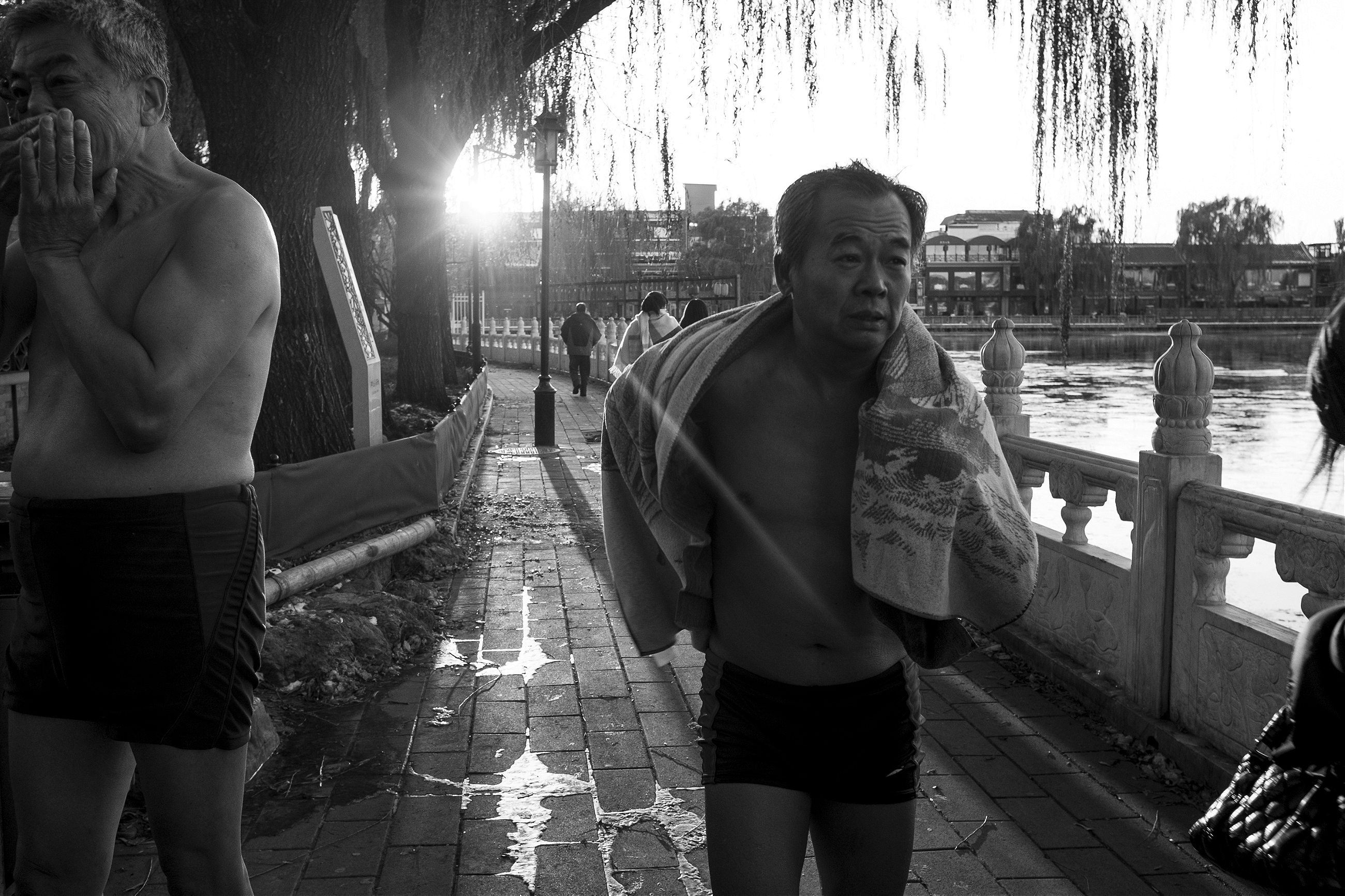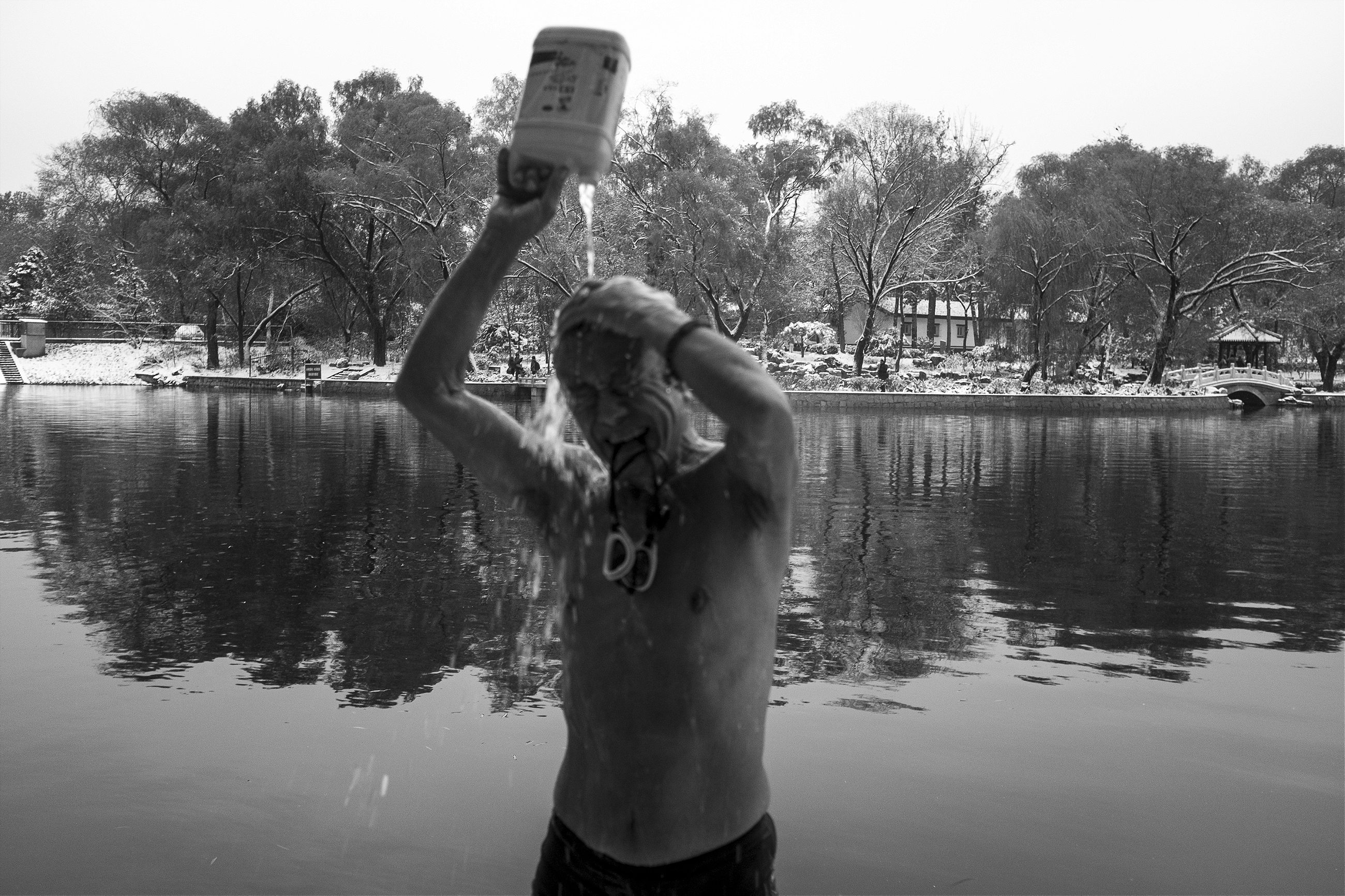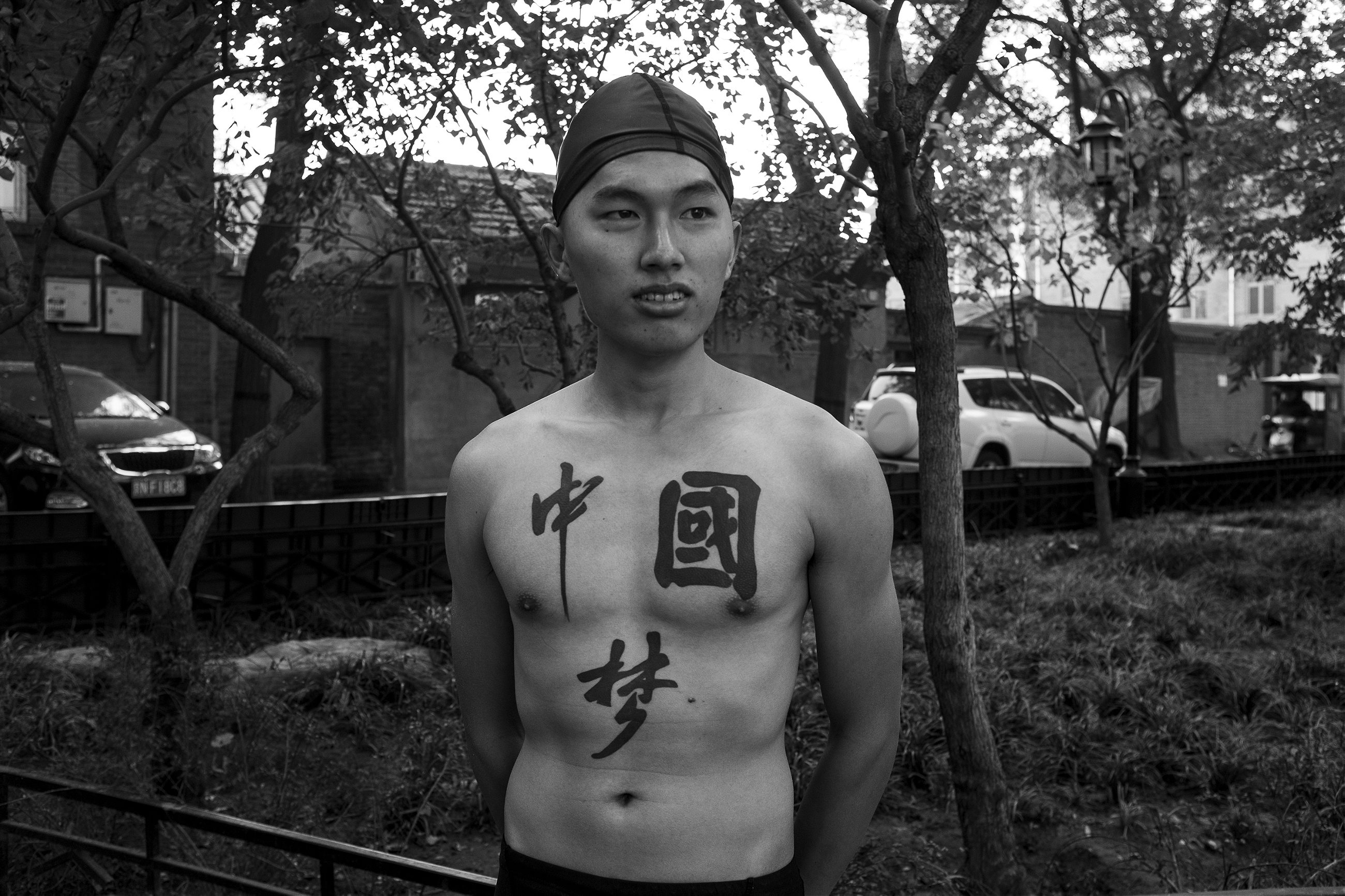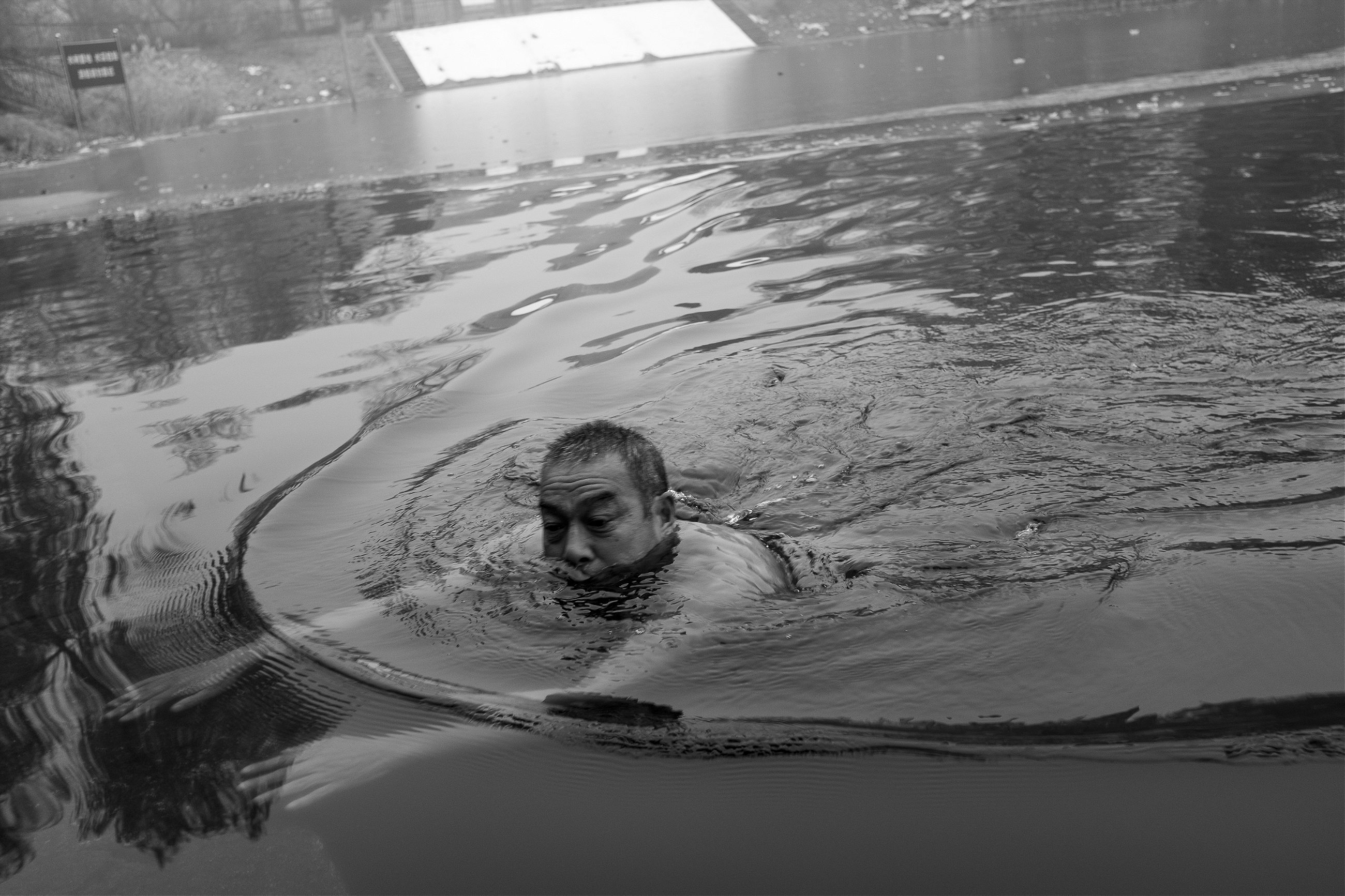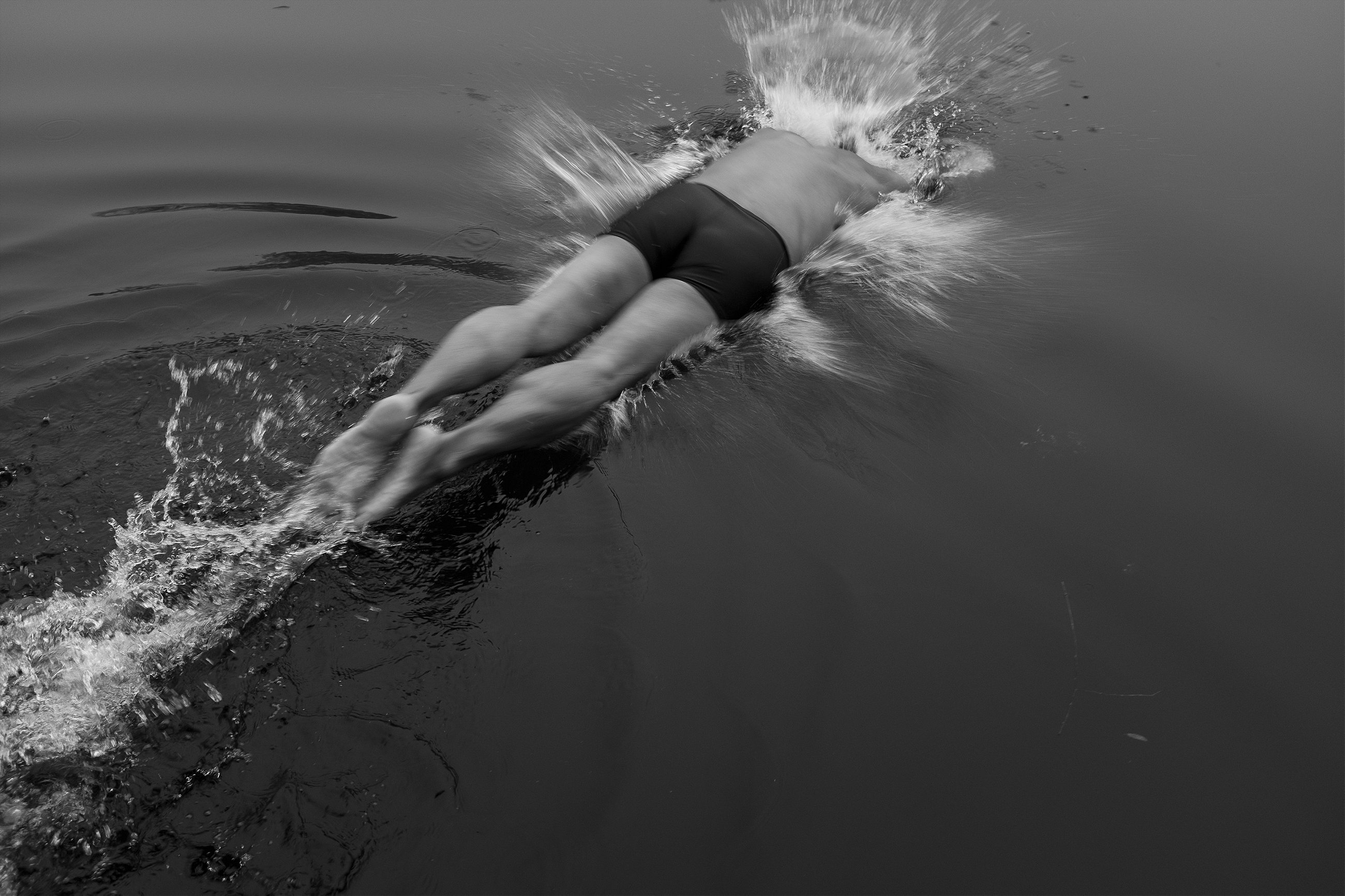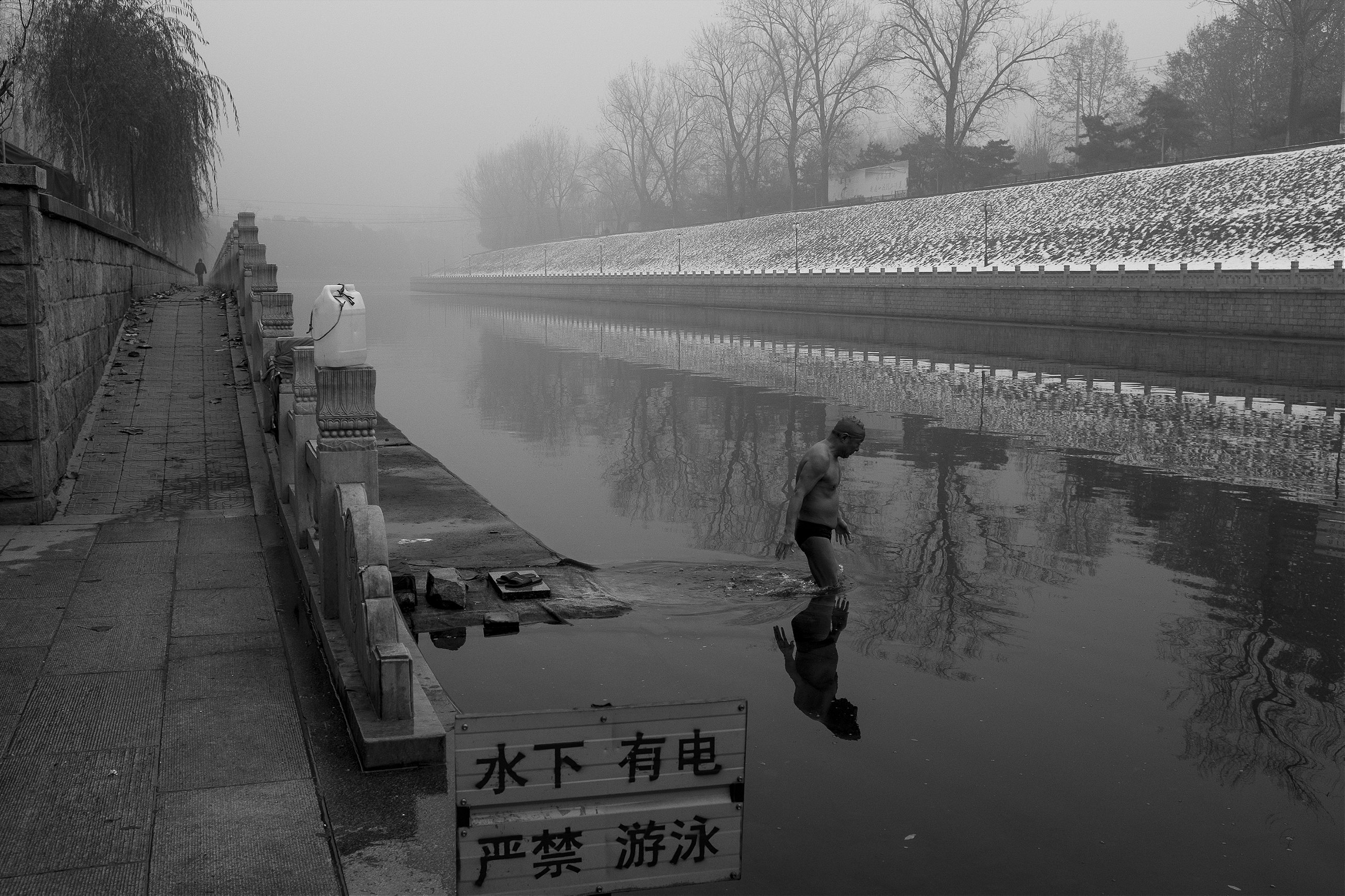In the heart of Beijing, a photographer finds tranquility among a group of elderly swimmers.
The year’s first snow hasn’t completely melted in Beijing, and a cold, sharp wind is blowing from the north. I’m walking around Shichahai Lake, halfway between the Forbidden City and the Temple of Heaven, when a handful of men on motorbikes pass me on to the southern side. Chatting and laughing, they park their bikes, remove their clothes and dive into the icy water.
An hour later, the sidewalk is littered with clothes and towels. Dozens of others have joined. Primarily retirees (some are over 90 years old), they have embraced winter swimming as a stress-relieving exercise. They speak with a very thick and intimidating Beijing accent, but their interest in my camera and in my attention quickly breaks the language barrier.
“Do you swim? Do people swim in the winter in your country?” I explain that I’m not used to swimming in such cold temperatures—a real crowd pleaser—and omit what scares me the most about their pastime: the polluted water.
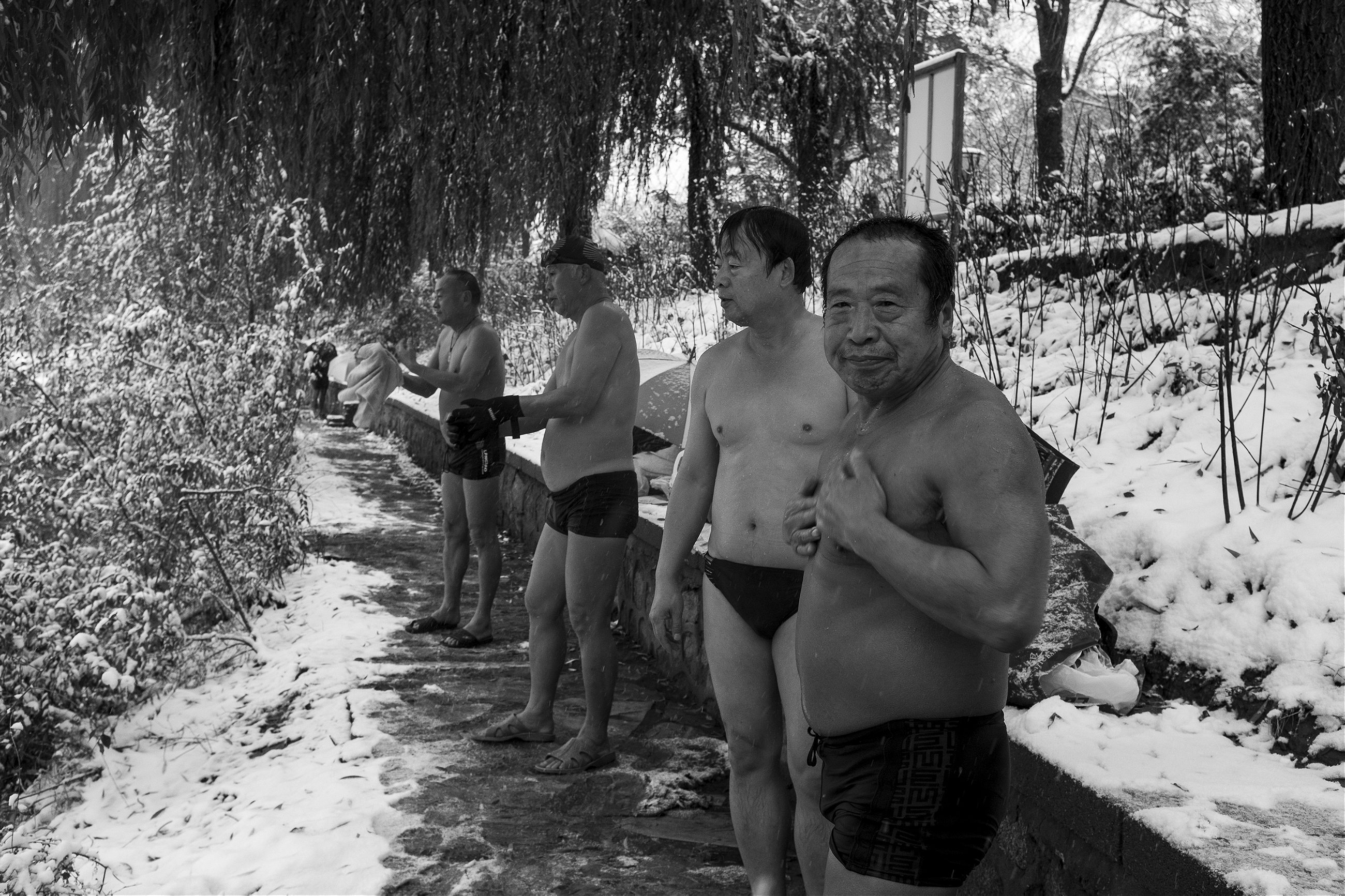
“When I don’t swim, I don’t sleep well at night,” one man tells me. “That’s why I try to come at least three times a week.” He takes a final drag from his cigarette before jumping in, shattering the reflection of a winter sun on the icy water. Here, in the center of Beijing’s cement, its endless traffic jams and constant construction, I have found tranquility, a feeling that keeps drawing me back. After a day of battling through crowds, bikes, rickshaws, and cars, spending time with the swimmers is my way to unwind.
If ice covers the water, they cut holes in the city’s lakes.
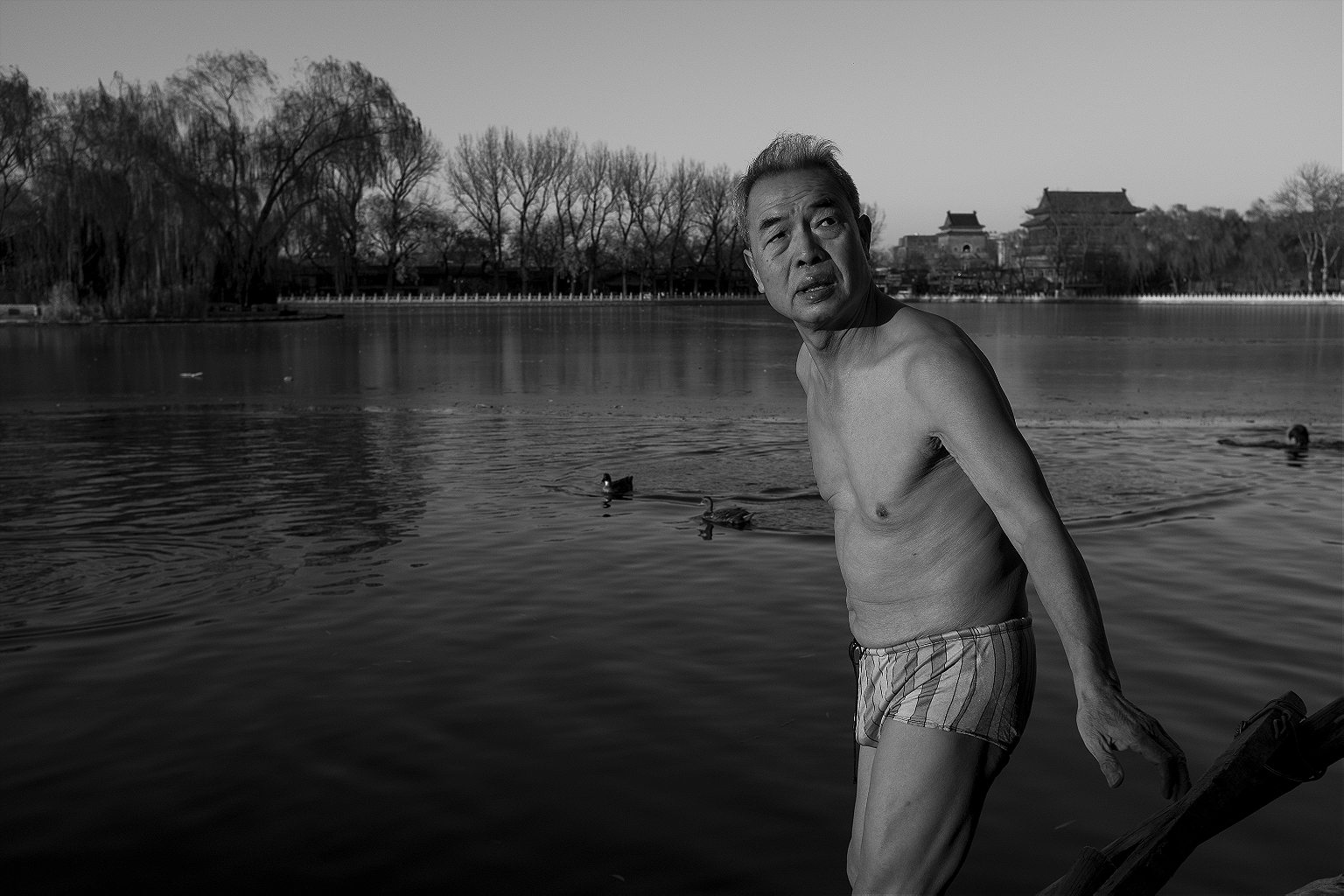
A little blackboard indicates daily temperatures inside a cabin they use to store cleaning materials and chairs. The colder it is, the prouder the swimmers appear. That’s because they believe they’re strengthening their metabolism, blood pressure and immune system—at least that’s what they repeat to anyone who asks. Some cite traditional Chinese medicine, others speak more abstractly about the psychological effects of winter swimming, but all of them agree on one thing: it has improved their lives.
Anyone can join the informal swimming club. Subscription fees have stayed low through its three decades of existence and today, it counts about 1,000 members. Most of them show up in the early afternoon. If ice covers the water, they cut holes in the city’s lakes or canals to keep their ritual going. Drownings aren’t uncommon, I hear, but most swimmers shrug them off. “It only happens if you don’t know how to swim well, but we take care of each other.”
Of course, the authorities, always mindful of how the city appears to outsiders, aren’t fond of the activity. But the swimmers are undeterred by the signs and the police warnings. In western Beijing’s Yuyuantan park, swimmers have cut holes in a fence to make their way down a dangerously steep slope and reach the water after the area was closed for renovation.
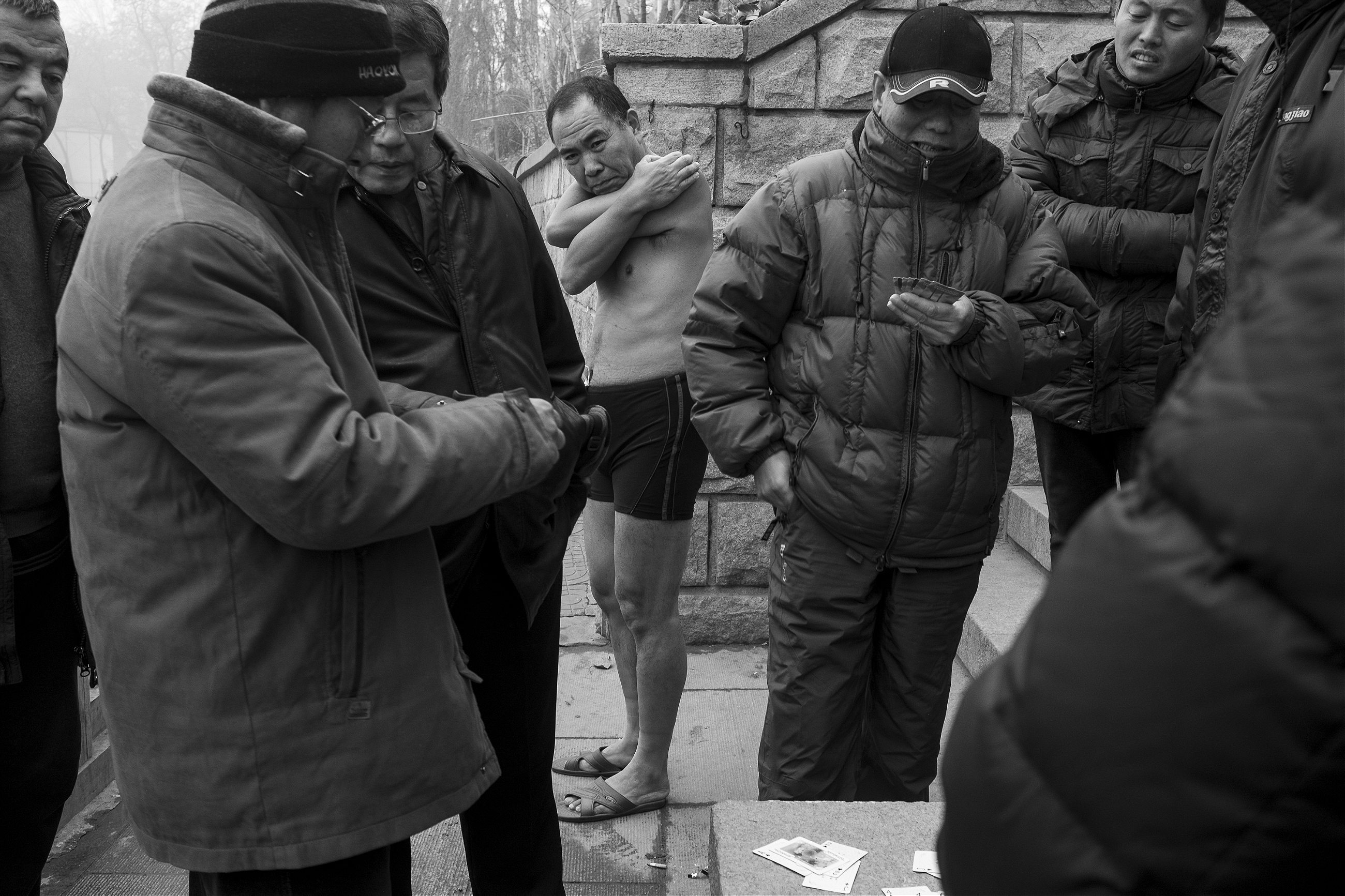
“Electricity under water. Swimming is forbidden,” reads a sign on the pavement at Shichahai Lake, but it looks like I am the only one concerned about it. On the banks, losing card games players shout at the others, men and women stretch and run, and half naked procrastinators, their goggles already on, gather up the courage to get in the water. Once they are done swimming, they’ll reward themselves by washing down with warm water or more exercise.
“It’s important to keep moving and to stay warm,” explains Xie, who breaks his routine only on very polluted days. “I don’t get near the water when it’s dirty, it’s disgusting and you never know what can do to your body.”
After his daily practice, Xie and his friends like to play Jianzi. As I watch their feathery ball bounce from foot to foot, I feel transported back in time, far from Beijing’s 10-lane highways, shiny skyscrapers, and mega shopping centers. Amid the city’s hyper-consumerism and efforts at modernization, all that the swimmers need for a good time are their bathing suits, some polluted water, and each other.
